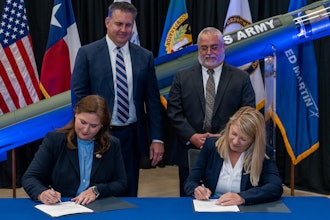SEATTLE (AP) -- Boeing Co. plans to use suppliers to duplicate production of all 787 jetliner parts made in its Pacific Northwest factories so its new second assembly line in North Charleston, S.C., can operate independently.
Boeing spokesman Jim Proulx told The Seattle Times on Monday that labor strikes in the Puget Sound region were a major factor in the decision. With a second supplier for every part, Boeing would be able to continue producing 787s in South Carolina even if a strike paralyzed factories here.
"Repeated labor disruptions have affected our performance in our customers' eyes," Proulx said. "We have to show our customers we can be a reliable supplier to them."
Boeing has relied extensively on suppliers around the globe to build sections of the plane that are later assembled at its Everett plant. But that approach has proved problematic, with ill-fitting parts and other glitches hurting production. A walkout by Machinists last year also forced the company to shut its commercial plane operations here for eight weeks.
Boeing has postponed the 787's inaugural test flight and deliveries five times, putting it more than two years behind schedule and costing Boeing credibility and billions of dollars in anticipated costs and penalties. The company has said it intends to have the first flight by the end of this year.
Boeing makes some 787 parts at its own factories in Everett, Auburn and Frederickson, Wash.; and Portland, Ore., all of which are covered by contracts with the International Association of Machinists and Aerospace Workers. Boeing workers in North Charleston have voted against continued representation by the Machinists.
The new assembly line announced by Boeing in October is expected to produce its first plane in early 2012, before Boeing's next contract talks with the Machinists.
The Times said that Ray Conner, vice president and general manager of supply chain management and operations, said in a memo sent Monday to all Boeing Commercial Airplanes managers that the company will immediately begin selecting suppliers to achieve full coproduction by 2012. The decision means only duplication, not replacement, of work now done in the Northwest, Conner said.
Tom Wroblewski, president of Machinists District 751, which represents Northwest Boeing plants, said this was "another poor decision is a long line of poor decisions on this 787 program."
Local union members are saving the 787 program by fixing problems, many of which originated with the outside suppliers, Wroblewski said, adding that Boeing could save the expense of duplicating production if it bargained in good faith.


















